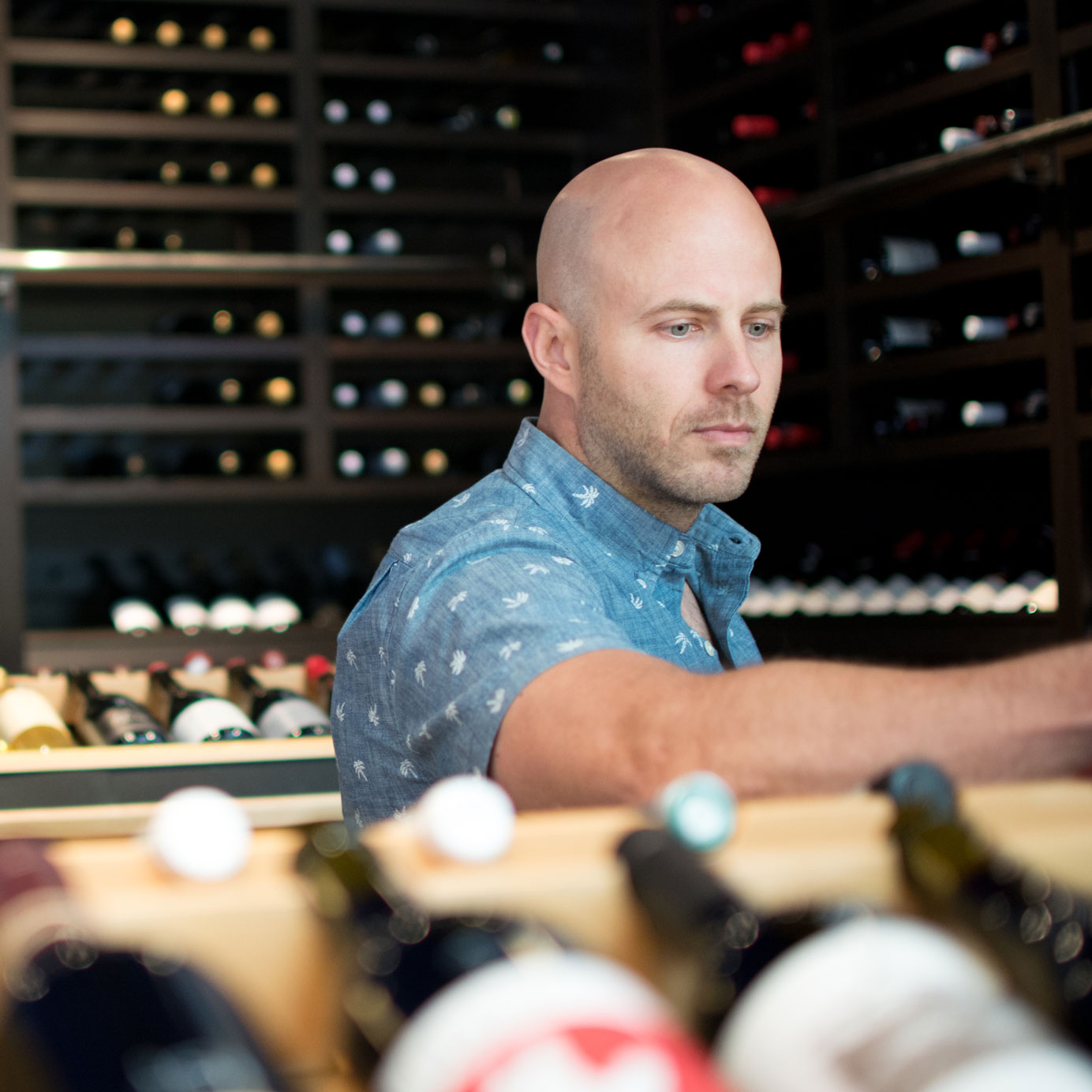Sommeliers are having a moment. Documentaries and television shows are proliferating, as are worshipful works of nonfiction about these adored wine whisperers. As masters of one of the most universally intimidating aspects of our lifestyle culture, sommeliers are now ricocheting to the tops of rock star lists, the way chefs once did 30 years ago. As one of the chefs in the Netflix documentary Somm put it, “Somms are the new celebrities in our industry.”
Take one of Somm‘s stars, Dustin Wilson. Wilson used to be the wine director of Eleven Madison Park (EMP), named the Best Restaurant in the World of 2016. He is one of just 149 Master Sommeliers in America, an achievement chronicled in Somm. Following the movie’s release, Wilson was at the peak of his career; patrons at EMP would recognize him from their screens – something that used to be the exclusive province of celebrity chefs. After the movie came out, guests weren’t just coming to EMP to meet its lauded chef, Daniel Humm; they were coming to the restaurant to meet Wilson. He had become a true celebrity sommelier.
But there’s an irony to the Celebrity Somm that no one seems to be talking about. The fact is that being a somm — even a celebrity somm working at the world’s best restaurant — is a dead end job. Sommeliers’ salaries max out at $150K — and even that’s rare. That means that even if you’ve had your own Netflix movie and controlled the wine list at the best restaurant in the world, you eventually will have to find something else to do.
Don't Miss A Drop
Get the latest in beer, wine, and cocktail culture sent straight to your inbox.“There’s a cap to what a somm can make in their career,” Wilson told me recently. “Being a somm almost needs to be a platform for something else, because eventually, you hit a ceiling.”
*
That somms eventually have to find something else to do is never more apparent than when watching Somm, the film that launched them into stardom. All four of the somms featured in the film are now doing other things. Ian Cauble and Brian McClintic are involved in retail — they are both associated with online wine businesses. A third somm featured in the film, DLynn Proctor, is now the ambassador for Treasury Wine Estates. And Dustin Wilson has just opened a wine shop.
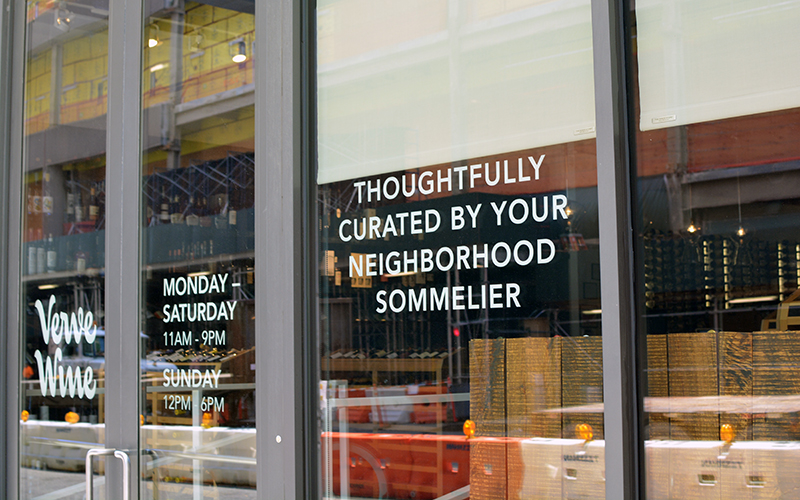
Verve Wine Company is Wilson’s brand new wine shop in Tribeca. It’s located in New York City’s most expensive neighborhood. High-end bottles line the walls in horizontal rows, impressively backlit. There is a clean, minimalist feel to the space. And behind the counter sporting his telltale bald pate and big blue eyes stands Wilson. Leaving EMP was always part of the plan, he tells me. “It’s incredibly rare to see people stick it out on the floor for their entire career, even if they love it,” he says. “The personal life and money tradeoffs are just too much.” For Wilson, retail was a natural next movement in his illustrious career in wine.
The story of how Wilson got into wine is a tale that will be familiar to anyone who’s spoken to a somm or two about their life choices. After college, Wilson planned to pursue an MBA and a lucrative career in finance, but he took a few years off to ski in Colorado. To pay for the party, Wilson parlayed his college experience waiting tables at a steakhouse in Baltimore into a job at a restaurant. It just so happened to be Frasca Food and Wine, the restaurant of Master Sommelier Bobby Stuckey.
“Working with Bobby is what made me realize wine could be a career path,” Wilson tells me.
He started getting obsessed with learning about wine and tasting wine. A geography major in college, Wilson loved looking at all the regional maps. And pretty soon, there was no going back. His original intention of heading to Colorado to “goof off, ski, and work in wine” before returning Maryland to pursue a graduate degree was diverted by a new, unquenchable thirst for wine knowledge. “I said screw it, and decided to go all in on wine,” he recalled.
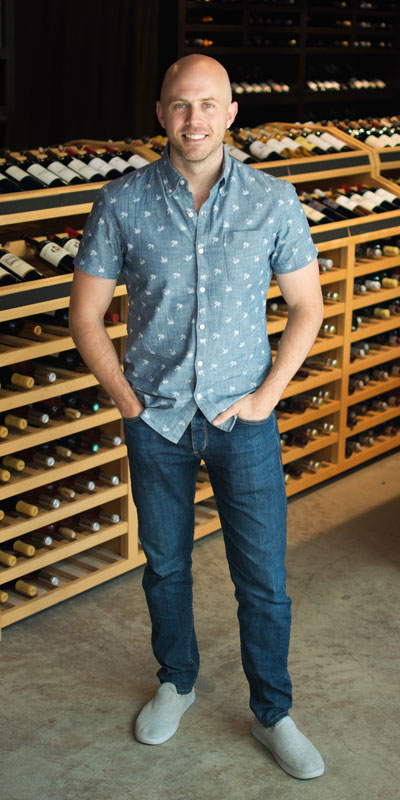
There was a group of sommeliers in Boulder, including some Master Somms, and they were a big part of Wilson’s desire to pursue certification. “I realized if I wasn’t going to go back to school, and I was going to choose this nontraditional career path, I wanted validation,” he says.
It took him three tries to pass the Advanced exam. “I always did a great job on service and theory, but tasting for me was tough,” he says. “I finally passed that on the third try.”
It took him two tries to pass the Master’s, and it was these attempts that were chronicled in the film that made him famous.
*
Wilson’s appearance in Somm was almost accidental. While taking his Advanced exam, he met a fellow sommelier, Brian McClintic, and the two hit it off, spurring each other on to further achievements. “I’m a competitive person, so when Brian told me he was going to go for Master, I decided I’d do it, too,” Wilson remembers.
Wilson had moved on from Frasca and was working at The Little Nell in Aspen at the time. Meanwhile, McClintic was looking for better access to wine. Wilson told McClintic he could get him a job, so McClintic moved to Aspen with his wife, and Wilson and McClintic started tasting wine together. Around this time, McClintic had a friend named Jason Wise who was working as a producer at PBS. Wise wanted to make a documentary about the Master Somm exam and asked if he could tape some of their practice sessions.
“At the time, to be completely honest, we didn’t think anyone would ever see what he filmed,” Wilson confessed. “I really thought he was just filming us as an excuse to get together and drink wine.”
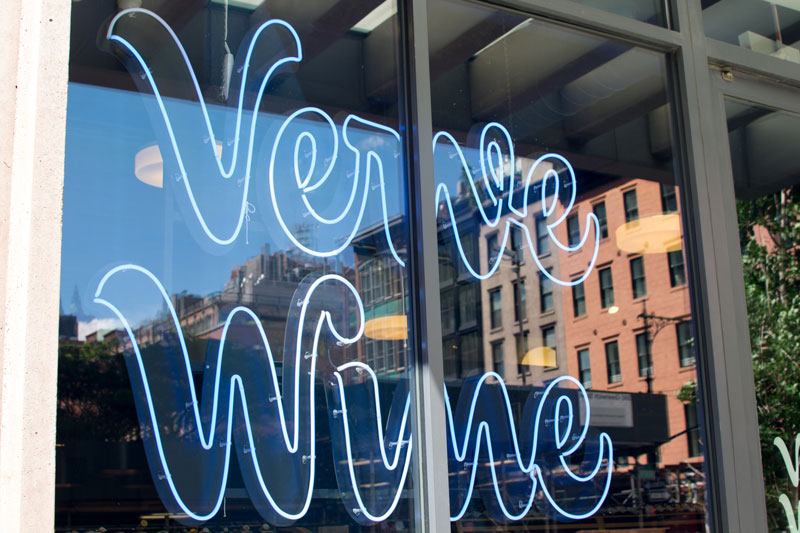
You can’t really blame Wilson for being suspicious. There had never really been a movie like Somm, especially not one that had mass appeal. “I don’t think I really realized it was going to be significant until I found out it had been picked up as the lead film at the Napa Film Festival,” he says. “All of us flew out for the premiere and did the Q&A afterwards. It really was then that I saw just how significant the movie was.”
After passing the Master exam, Wilson landed the job at Eleven Madison Park, under the new ownership of Daniel Humm and Will Guidara, who had just purchased the restaurant from Danny Meyer.
It was around this time that Somm started becoming “a thing,” as Wilson puts it. The movie had been picked up by Netflix and was being featured on airplanes. Suddenly, Wilson was getting recognized by guests at the restaurant. “From there everything just took off,” he says with a smile.
*
It’s always fascinating to sit opposite someone you know from your screen. There’s almost always a discrepancy, and in Dustin Wilson’s case, it’s no different. On Somm, Wilson comes off as intimidating. He is incredibly serious and focused, and the world he exists in in the film seems very out of reach, even to people interested in wine.
But in person, he’s anything but that. He’s humble and easy to talk to, even reserved. He admits things other somms never do, like how difficult he found the tasting section of the Master exam. In fact, he seems not to enjoy the spotlight at all. “I hate the term ‘celebrity somm,’” he confessed.
Sitting in Verve, hearing about Wilson’s almost lackadaisical rise to prominence, I believe him. In fact, a wine shop is not a stretch at all for this celebrity somm, who seems much more comfortable talking to people one on one in his shop than being a celebrity – so comfortable, in fact, that he interrupted our interview three times to help customers.
“I love when people come into the shop and tell me they made the trip from Brooklyn or Ohio just to buy what we’re excited about,” Wilson tells me.
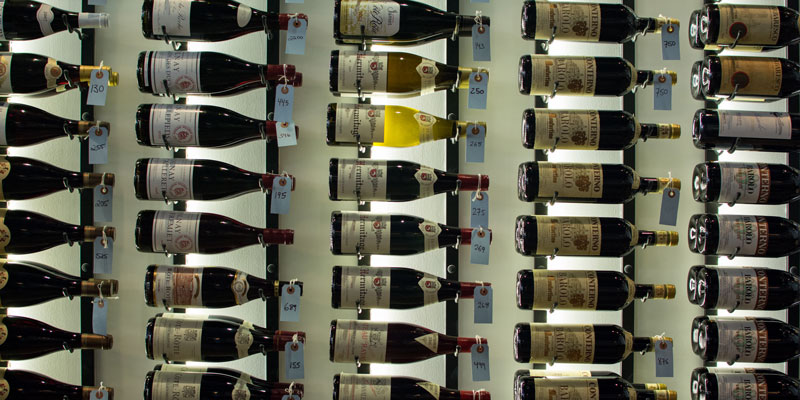
Though he wont say it, I can tell Wilson recognizes this isn’t normal consumer behavior. He knows they’re coming to Verve because he’s behind it and the one choosing the wines; his celebrity, and his willingness to leverage it, will be a crucial part of whether Verve succeeds or fails.
But the success or failure of Verve will be telling in a larger sense, too. It will help answer the question of whether retail is a viable second movement for a sommelier when they’ve maxed out on the floor. For now, Wilson has found a way to parlay his fame into a business venture.
The irony of the celebrity sommelier is that though they may be the new celebrity chefs, in one crucial way, they aren’t like celebrity chefs. A celebrity chef can build a lucrative career opening restaurant after restaurant, consulting on the menu and moving on to the next big thing. Even if the celebrity chef isn’t at one of her many restaurants, consumers still feel like they are eating her food because she created the recipes.
But sommeliers don’t make wine. They serve it. That means that their job is a service-oriented one in which that personal interaction simply cannot be substituted or deferred. And at the end of the day, service jobs just don’t pay that well.
This unique knot inevitably leads the brightest, most talented sommeliers out of the business. And you can’t really blame them. Sommeliers can now become celebrities. The irony is that once they do, they can’t really be somms anymore.
